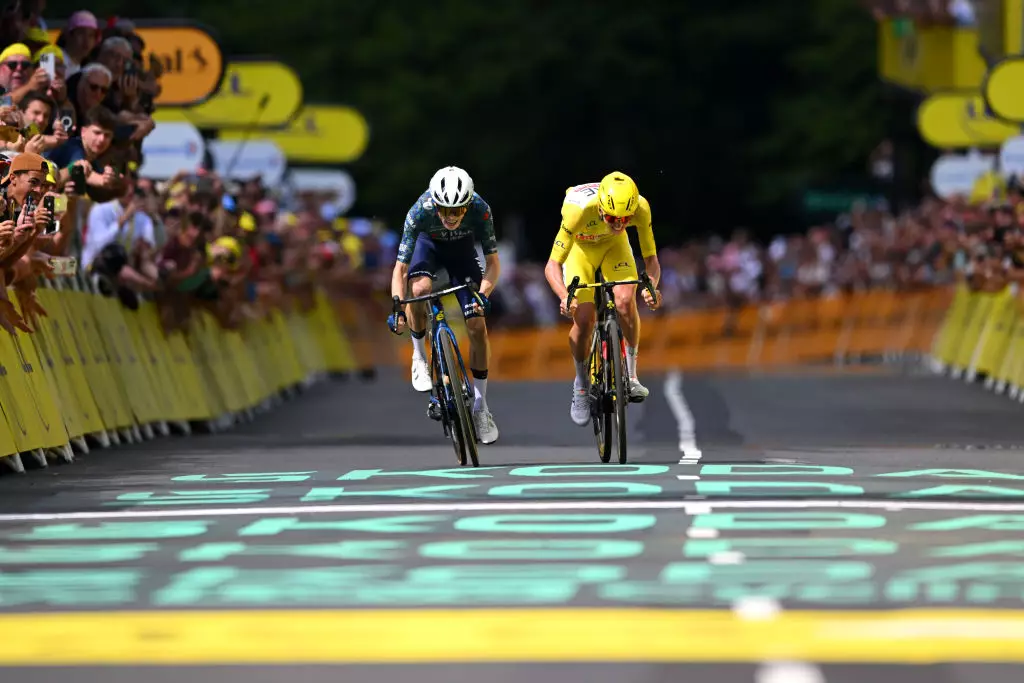The recent acquisition of exclusive UK broadcasting rights for the Tour de France by Warner Bros. Discovery (WBD) marks a significant transition in how cycling’s premier event will be presented to British audiences. As the only company to place a bid, WBD’s grasp on the rights reflects a changing tide in sports media, indicating a new phase for cycling in the UK. With speculation surrounding a potential highlights package on free-to-air platforms, the announcement has stirred concern among cycling fans regarding the future of accessible viewing options.
Currently, ITV holds the rights to the Tour until the 2025 race, with murmurs that it didn’t pursue a renewal. This raises critical questions about how audiences in the UK will engage with the Tour post-2026. The legacy of previous coverage on channels like Channel 4 and ITV has created a culture of viewership that may be challenged if accessible broadcast options are abbreviated or removed altogether.
Cycling has surged in popularity in the UK, largely thanks to a string of Olympic successes and a trio of British champions in the Tour de France: Bradley Wiggins, Chris Froome, and Geraint Thomas. This momentum has fostered a cycling community eager for both competitive and recreational riding—elements that were at the forefront during the pandemic as people explored cycling as a safe outdoor activity. Furthermore, the prominence of the British Ineos team has enriched the competitive landscape and captivated a wider audience.
However, as the excitement builds for the next Tour, the fear within the community is palpable. Fans are worried that relying on WBD’s managed platforms will restrict viewer engagement, particularly for those who lack pay-TV subscriptions. The concern is that this shift could alienate a significant portion of the cycling community and hinder the sport’s growth trajectory.
Evidently, WBD’s Eurosport has long been a hotbed for comprehensive cycling coverage, having broadcast the Tour since 1991. As a channel renowned for its year-round cycling content, the introduction of either a full or partial free-to-air element through its sister channel, Quest, presents an intriguing possibility for both casual viewers and die-hard fans.
While many cycling aficionados relish the idea of accessible highlights showcasing the essence of the Tour, the value imposed by Eurosport’s paid coverage cannot be underestimated. Eurosport already livestreams other major cycling events, including the Giro d’Italia, frequently using its platform to reach cycling enthusiasts who may seek comprehensive insights into the sport’s grand tours.
The decision of ITV to step back from cycling rights negotiations has broader implications. While ITV has recently secured rights to soccer matches involving the England men’s and women’s teams, this prioritization exemplifies the shifting dynamics in sports broadcasting where popular sports are often pursued over niche events, regardless of their historical significance. This pivot presents an opportunity for growth elsewhere but leaves cycling fans to ponder its impact on the sport’s visibility in the UK.
In direct consequence, the upcoming 2026 Tour de France will be the final event broadcast on ITV, marking the end of an era for many viewers fond of the channel’s engaging commentary and analysis. The real test, however, will be how WBD navigates this transition and the possibility of continuing to engage the UK cycling fan base in the future.
As we move toward the next edition of the Tour de France in 2026, the transition from ITV to WBD will undoubtedly generate a significant shift in audience dynamics. Whether WBD succeeds in maintaining the Tour’s accessibility will determine whether cycling in the UK continues on its upward trajectory or experiences a setback. Through thoughtful consideration and packaging, WBD has the potential to appeal to a diverse viewership, but the path to achieving this may prove challenging as the complexities of paywalls and viewer engagement deepens.
The future of Tour de France coverage in the UK hinges on WBD’s ability to balance profitability with accessibility, ensuring that the rich history of cycling remains alive and widely viewed across all segments of British society.
